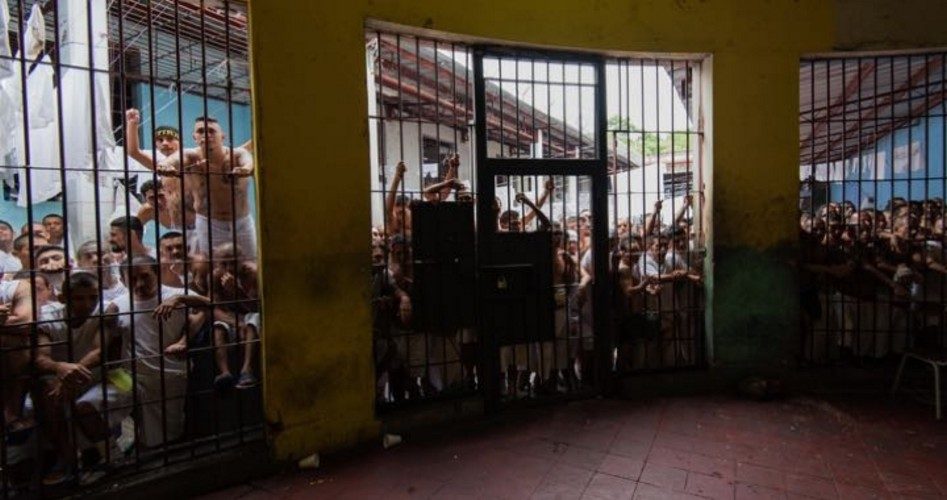
During an address to the International Association of Chiefs of Police in Philadelphia on October 23, 2017, Attorney General Jeff Sessions said he has designated the brutal MS-13 gang as a priority for the Justice Department’s Organized Crime Drug Enforcement Task Forces. Explaining how this will play out, Sessions said:
Now [the task force members] will go after MS-13 with a renewed vigor and a sharpened focus. I am announcing that I have authorized them to use every lawful tool to investigate MS-13 — not just our drug laws, but everything from RICO to our tax laws to our firearms laws. Just like we took Al Capone off the streets with our tax laws, we will use whatever laws we have to get MS-13 off of our streets.
Sessions stated that everyone in law enforcement is facing what he described as “a deadly lucrative international drug trade,” which is resulting in more deaths than ever before “thanks to powerful cartels and international gangs.” He said, “Perhaps the most brutal of these gangs is MS-13 — which is based in El Salvador, but whose tentacles reach across Central America, Europe, through 40 U.S. States, and to within yards of the U.S. Capitol.”
In our article last March we mentioned a report from CNN that provided some enlightening information for those unfamiliar with MS-13 and its history of violent activities. That report cites the U.S. Attorney’s Office in Massachusetts, which said that the gang, which is also known as La Mara Salvatrucha, is one of the largest criminal organizations in the United States.
The Massachusetts U.S. Attorney’s Office reported that in 2012, MS-13 became the first, and remains the only, street gang designated by the U.S. government as a “transnational criminal organization.”
CNN observed that the Justice Department regards MS-13 as such a major threat that the FBI created the MS-13 National Gang Task Force in 2004.
The report went on to cite a statement from the U.S. Attorney’s Office noting:
MS-13 is one of the largest criminal organizations in the country, with more than 6,000 members in at least 46 states and the District of Columbia, the US Attorney’s Office said. In addition, more than 30,000 members operate internationally, mostly in El Salvador, Honduras, [and] Guatemala.
The Massachusetts U.S. Attorney’s Office report was compiled during the Obama administration, so our government agencies at several levels have been aware of MS-13’s existence for quite some time. And as we noted in our article back in May, Senator Ron Johnson (R-Wis.) chairman of the Senate Homeland Security and Governmental Affairs Committee, stated in a May 23 letter to Scott Lloyd, director of the Department of Health and Human Services’ Office of Refugee Resettlement, that at least 16 self-proclaimed MS-13 gang members had been transferred out of federal custody and into community placement centers across the country during the border surge in unaccompanied “children” from Central America in 2014.
In his talk, Sessions said that MS-13 is not the only target of our government’s cooperation with law enforcement in other countries. As an example, he noted that in July, his department’s seizure and take down of AlphaBay — the largest dark net marketplace takedown in history. He stated that the website “hosted more than 200,000 drug sale listings and was responsible for countless synthetic opioid overdoses across the globe, including the tragic death of a 13 year old in Utah.”
This takedown of AlphaBay, said Sessions, was successful because of our close cooperation with international partners at Europol and in Thailand, the Netherlands, Lithuania, Canada, the United Kingdom, France, and Germany.
Sessions continued by observing that the Department of Justice doesn’t just coordinate operations between national governments. He said that DOJ also coordinates with state and local law enforcement. In the United States, he observed, 85 percent of law-enforcement officers serve at the state and local levels and that the DOJ cannot succeed without local police chiefs.
While cooperation between federal and local law-enforcement officers certainly has advantages in bringing criminals to justice, strict constitutionalists may also be concerned if that cooperation between levels of government becomes domination by Washington over local police. Local law enforcement must be aware that accepting federal funding, for example, inevitably leads to federal control and the loss of independence for local police departments.
While constitutional conservatives will likely support Sessions’ efforts to bring the wrath of law enforcement against violent gang members such as MS-13, another part of his address to the police chiefs will not sit well with them — civil asset forfeiture (CAF).
Look for our other article about that disturbing aspect of his speech.
Photo of MS-13 gang members: FBI
Related articles:
Illegal Alien MS-13 Gang Members Charged With Kidnapping, Rape, and Murder in Houston
Obama Administration Transferred MS-13 Gang Members to Placement Centers Across the Country



